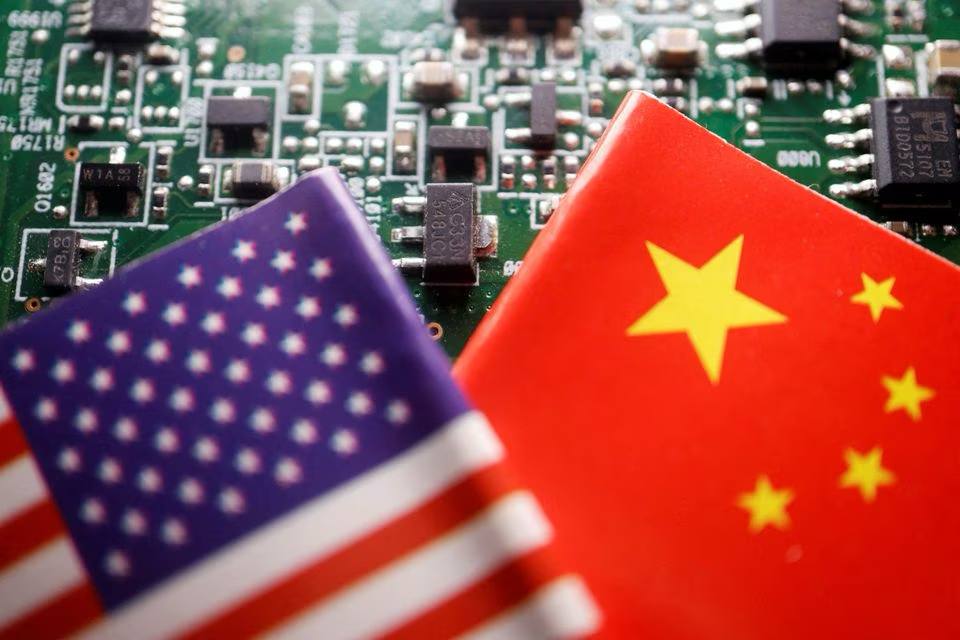Biden’s Restrictions Regarding China
According to Iran Gate, Biden has banned a wide range of U.S. investments in advanced technology in China due to national security risks. This order, which will be implemented next year, limits investments in semiconductors, microelectronics, quantum technology, and artificial intelligence. On Wednesday, August 9, U.S. President Joe Biden signed an executive order that restricts specific U.S. investments in sensitive technologies in China and requires notification to the government for investments in other technology sectors.
The long-awaited order allows the U.S. Treasury Secretary to prohibit or limit specific U.S. investments in Chinese companies in three areas: semiconductors and microelectronics, quantum information technology, and specific artificial intelligence systems. In a letter to Congress, Biden wrote that he is declaring a national emergency to counter the threat of countries like China advancing in sensitive technologies and vital products for military, intelligence, surveillance, or cyber capabilities.
In Beijing, China’s Ministry of Commerce accused the United States of disrupting the global industry and supply chain. In a statement, China’s Ministry of Commerce stated that the executive order seriously deviates from the market economy principles and fair competition that the United States has always promoted, affecting the normal operations and decision-making of companies, and undermining the international economic and trade order.
On Thursday, August 10, China’s Ministry of Foreign Affairs expressed strong concern over the order and reserved the right to take key measures. The country is also highly dissatisfied with the U.S.’ insistence on imposing investment restrictions in China and firmly opposes both the order and the submission of official representations to the United States.
The ministry further added that it hopes the United States will respect market economy rules and the principle of fair competition and refrain from creating artificial barriers to global trade and economic cooperation and hindering global economic recovery.
Semiconductors Are a Priority
The proposal targets investments in Chinese companies developing software for designing computer chips and tools for their production. The United States, Japan, and the Netherlands dominate these fields, and the Chinese government seeks to create domestic alternatives. The White House said Biden consulted with our allies on this plan and incorporated feedback from the Group of Seven countries.
Senate Democratic Leader Chuck Schumer praised Biden’s order, stating that for a long time, American money has helped grow China’s military. Today, the United States is taking the first strategic step to ensure that American investments do not support China’s military advancement. The Treasury announced that the regulations will only affect future investments, not existing ones, but may require disclosure of previous transactions.
This action could escalate tensions between the world’s two largest economies, although U.S. officials insisted that the bans are aimed at countering the most acute national security risks and not separating the two economies, which are heavily dependent on each other. The Chinese embassy in Washington said it is very disappointed with this action.
Republicans believe the plan is not aggressive enough. Michael McCaul, chairman of the House Foreign Affairs Committee, praised the action to limit new foreign investments in China but said the failure to include existing investments and sectors like biotechnology and energy is concerning.
The aim of the plan is to prevent American capital and expertise from aiding the development of technologies that could support China’s military modernization and undermine U.S. national security. The plan focuses on private equity, venture capital, and joint investments.
Some Expected Exemptions
The plan prohibits certain transactions and requires investors to notify the government about other investments. The Treasury Department said it anticipates some potential transactions, including those involving public instruments and intra-company transfers from American parent companies to subsidiaries, will be exempt.
China’s technology industry, once a magnet for U.S. venture capital investments, has seen a sharp decline in U.S. investment amid escalating geopolitical tensions. According to PitchBook data, last year, the total U.S.-based venture capital investment in China dropped to $97 billion from $329 billion in 2021. So far this year, U.S. venture capitalists have allocated only $12 billion to Chinese tech startups.
A source familiar with the plan told Reuters that regulations regarding artificial intelligence are still being finalized. The same source added that the same applies to quantum computing, but it is expected that specific sensors and other related technologies will also be banned. The source concluded that there might be potential exemptions for universities and research projects.
Republicans See Legal Loopholes
Republican Senator Marco Rubio said the Biden administration’s plan is almost laughable. This proposal is riddled with loopholes and blatantly ignores the dual-use nature of important technologies, and it does not include industries that the Chinese government considers vital.
Liu Pengyu, a spokesperson for the Chinese embassy in Washington, said the White House has not heeded China’s deep concerns about the plan. In a statement, he noted that over seventy thousand American companies do business in China and emphasized that these restrictions harm both Chinese and American businesses, disrupt normal cooperation, and reduce investors’ confidence in the United States. Pengyu added that China will closely monitor the situation and firmly protect its rights and interests.
Emily Benson from the Center for Strategic and International Studies (CSIS), a bipartisan policy research organization, said she expects investments in AI for military users and uses to be banned and that other investments in this sector will only require notification to the government.
Benson said the responsibility for determining which AI falls under the military category will be up to the government. She further added that they need to outline a list of military applications for AI and define AI, and concluded by emphasizing that key questions include how this plan will impact U.S. allies and how China will respond.
English
View this article in English

